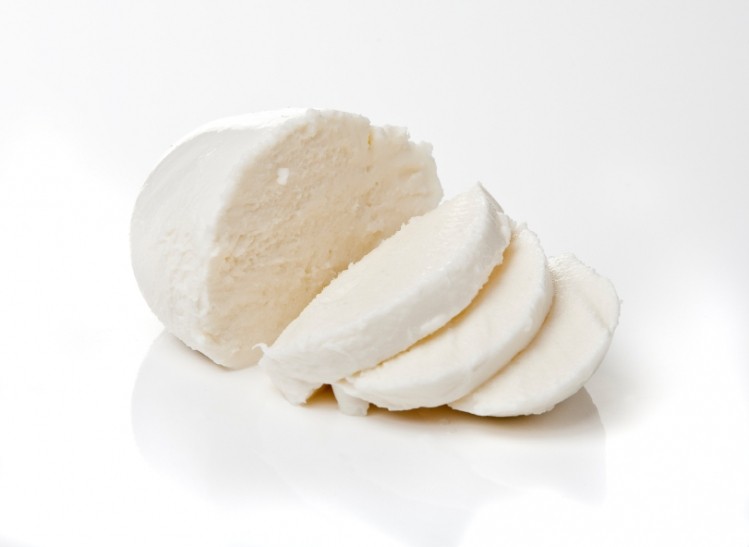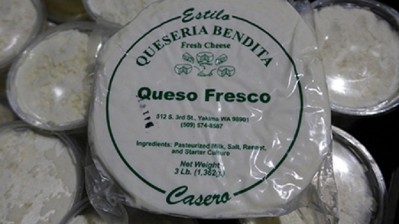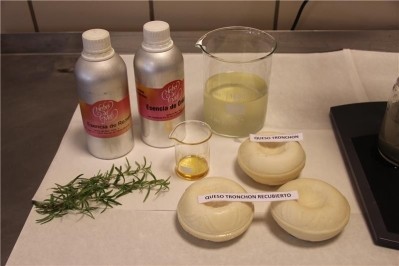Antimicrobial sachet tested to reduce Listeria in mozzarella

However, a sensory evaluation found the sachet treatment influenced odor which could affect the acceptability of the product, said the researchers.
An antimicrobial sachet containing microcellular foam starch (MFS) with embedded rosemary oil and thyme oil was created to reduce bacterial growth in shredded mozzarella cheese.
The cheese, inoculated with a cocktail of five strains of L. monocytogenes (approximately 3 log CFU/g), was packaged in a Nylon/EVOH/PE bag.
A paper sachet containing MFS embedded with rosemary oil and thyme oil, separately or together, was inserted into the bag.
The antimicrobial sachet containing rosemary or thyme oil alone or both oils (1% w/w oil total) did not eliminate L. monocytogenes in mozzarella cheese after inoculation at 3 log CFU/g.
However, it did slow down the growth of L. monocytogenes and produced a significant difference in counts by day 15.
Bacterial level control
The initial bacterial level in control (untreated) cheese was 3.5 log CFU/g. After 15 days storage at 10 °C, this increased to 7.2 log CFU/g.
The MFS sachet containing 1% rosemary did not exert strong antilisterial activity, but resulted in slower growth and a lower count of L. monocytogenes until 12 days (P <0.05).
The 1% thyme oil sachet reduced the count more effectively than the rosemary oil one (P <0.05).
Rosemary oil and thyme oil together retarded the growth of L. monocytogenes and produced a significant difference of 2.5 log CFU/g at day nine.
The mixed oil and the thyme oil sachet resulted in similar reductions in L. monocytogenes. Use of the 1% thyme oil and 1% mixed oil sachets yielded the lowest count.
Sensory issue
The odor and color of shredded mozzarella cheese samples packaged with and without the sachet were evaluated.
The effect of the oils on odor could be minimized, depending on the food to which the sachet treatment is applied, but cannot be avoided, as the vaporized oil fractions are the key factors in inhibition of the growth of L. monocytogenes, said the researchers.
Five strains of L. monocytogenes serotype 1 were used. An L. monocytogenes colony of each culture, grown on trypticase soy agar (TSA), was transferred to trypticase soy broth (BBL) and incubated for 24 h at 35 °C.
After incubation, each culture (30 mL) was centrifuged at 9000 rpm for 10 min at 10 °C. The centrifugation pellets were washed with 30 mL of 0.1% peptone water and recentrifuged at 9000 rpm for 10 min at 10 °C.
After washing and centrifugation, the cultures were resuspended in peptone water and diluted for a final bacterial cell density of 8 log CFU/mL.
The cocktail was prepared by combining equal portions of each strain to produce an inoculum of 109 CFU/mL and diluted in 0.1% peptone water to produce the desired inoculum concentrations.
The cocktail of L. monocytogenes was serially diluted and plated on the surface of 15-mL prepoured solidified TSA on the bottom of a 180-mL sterile glass jar.
The final bacterial level on the agar surface was 3 log CFU/cm2. Rosemary oil at 0.1%, 0.2%, 0.4%, and 0.5% (v/v of 15 mL agar in the jar) and thyme oil at 0.05%, 0.075%, and 0.1% (v/v of 15 mL agar in the jar) were separately placed in a disposable polystyrene beaker that was glued on the inside of the jar lid.
Source: Journal of Food Science
Online ahead of print, DOI: 10.1111/1750-3841.12659
“Retardation of Listeria Monocytogenes Growth in Mozzarella Cheese Using Antimicrobial Sachets Containing Rosemary Oil and Thyme Oil”
Authors: Jung H. Han, Dhaval Patel, Jung Eun Kim and Sea C. Min






